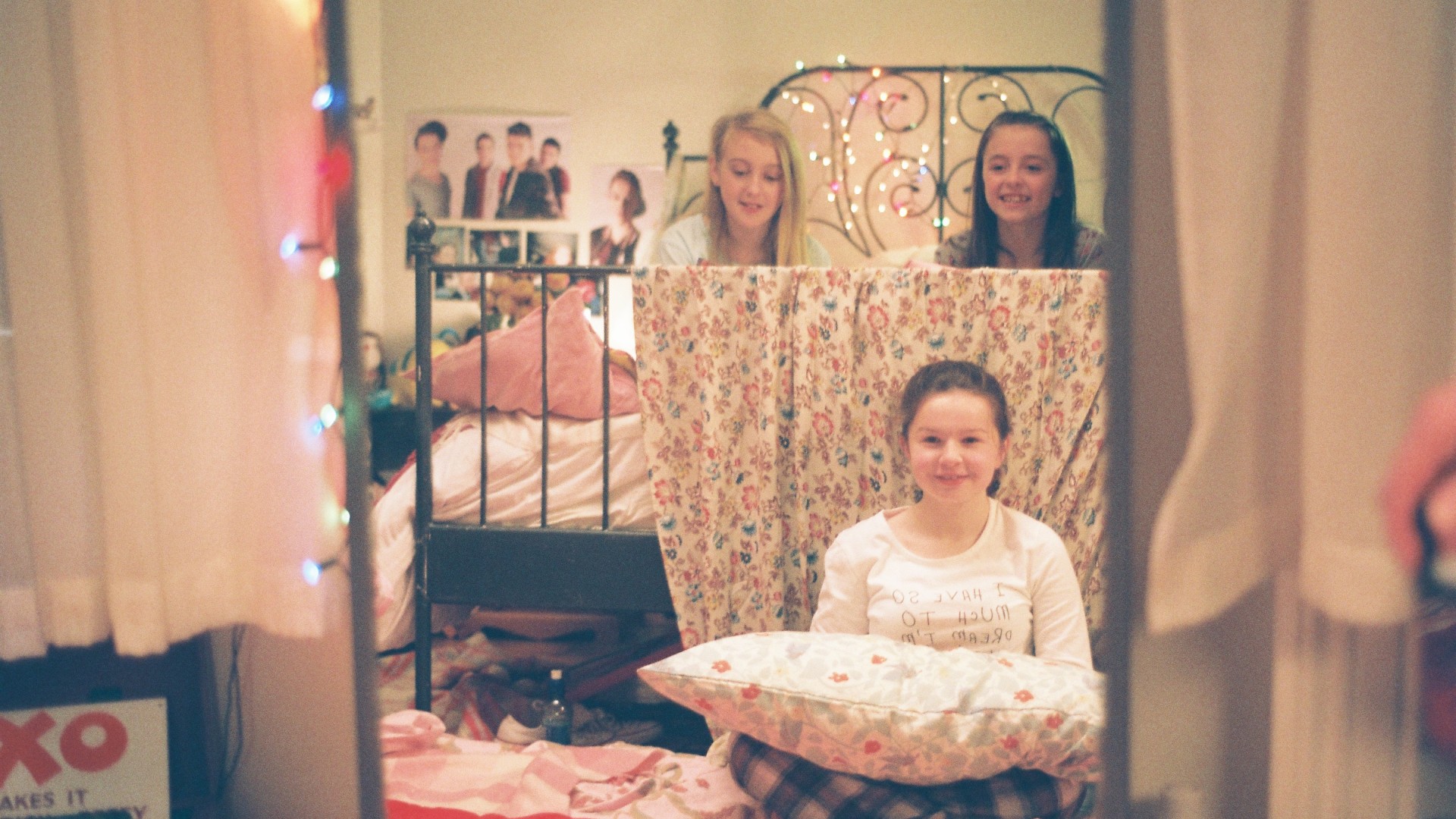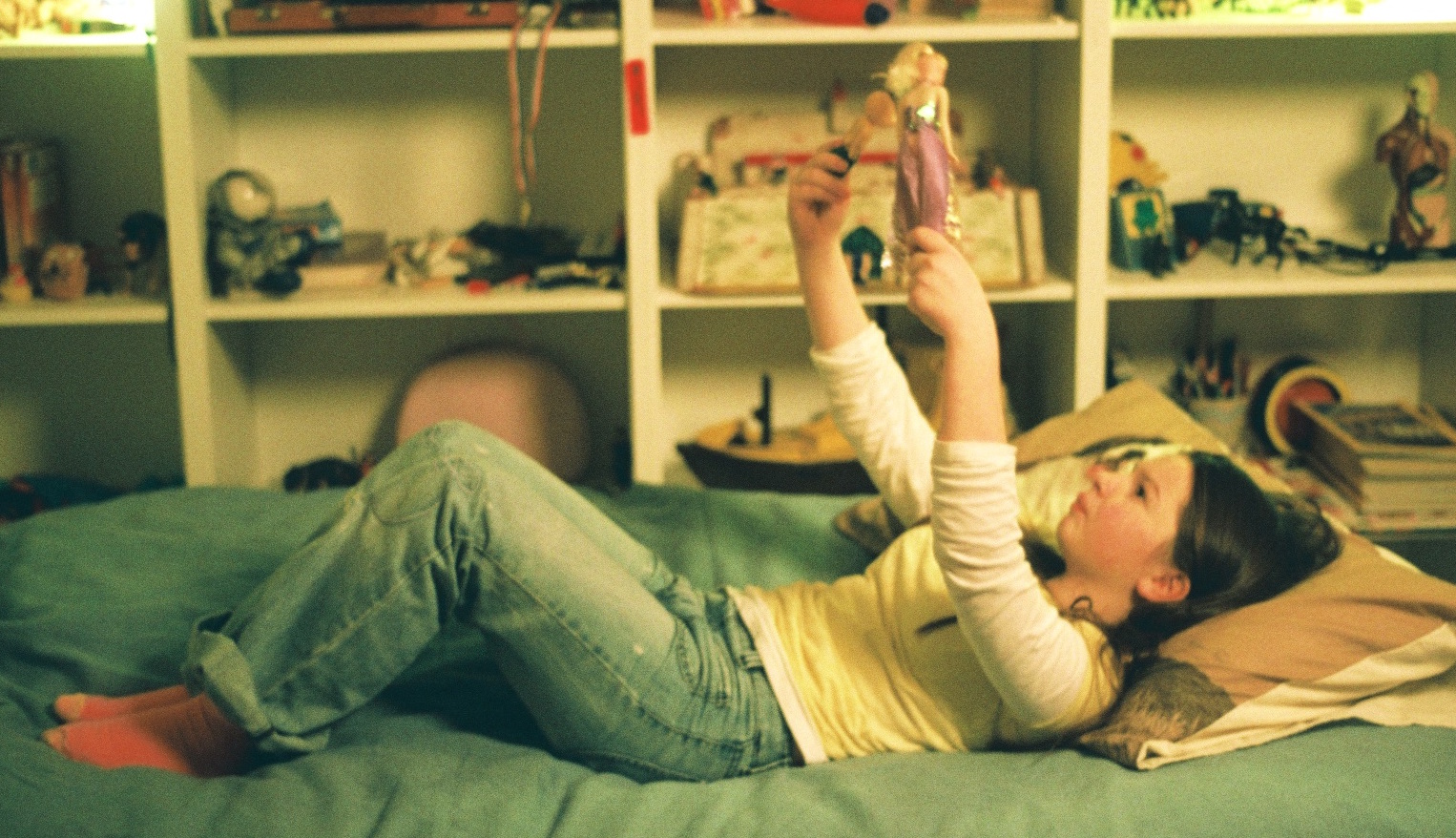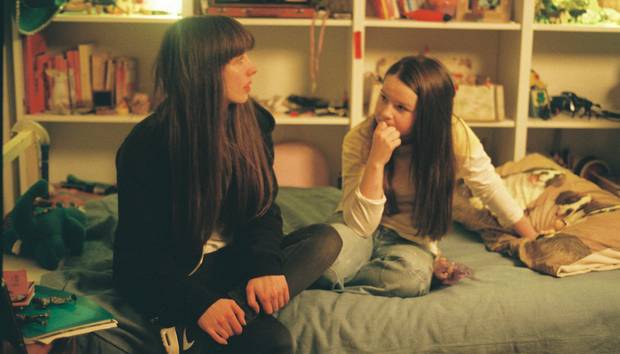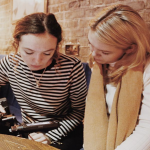Kate Dolan’s short film Little Doll explores a young girl’s first lesbian crush, as well as the social forces that impact her sense of identity. Focussing on a sleepover, the film considers the stereotypes of girlhood, as well as the way in which peers react to appearances of difference.
FilmDoo talks to Kate about Little Doll’s themes and inspirations.
What inspired you to make the film and to what extent is it based on personal experience?
When I started to write the film I was thinking a lot about my first crush on a girl in my class when I was about 7. I remember not really understanding my feelings at the time, but that was definitely the beginning of my journey as an LGBTQ person. So, I began to wonder when other people may have had their first inkling that they may be attracted to someone of the same-sex. I interviewed some of my LGBTQ friends and I was astounded that most people had feelings like this from as early as 4 years old. I thought that it was strange that I hadn’t seen any films that depicted this particular time in your life and so I wrote Little Doll.

How did you find the child actresses and how was the experience of working with them?
I love working with kids, they are so honest and forthright and are never shy about telling you when they don’t understand something you’ve said or some direction you’ve given them. I think it makes you a better director. The girls we cast were amazing and so relaxed, and had no qualms about the content of the film. Casting was tough though, due to the content of the film some drama schools refused to even send the script out to parents. One girl also dropped out in the final stages of casting because she was afraid that her friends would think she was gay if they saw her in the film. Things like that were disheartening and made me sad at first but then I remembered – that’s why we are making this film, to change people’s perspectives.
The film looks at a young girl’s first crush on another girl. How important do you think these first crushes are to self-understanding?
I think crushes like this are inevitable. They are part and parcel of growing up LGBTQ. There is always some “best friend” or idolized same-sex individual that you end up becoming obsessed with. These crushes early on in life are really the start of a very long road to self-acceptance. Most of the time we barely even realize that they are crushes – we just REALLY like this particular person. It’s probably not until we get some perspective later in life that we really go “oh that’s why I liked them so much, I actually really faniced them.”
Intimidation by peers is a theme of the film, as is their implied lack of understanding of the two girls’ relationship: why did you want to explore this?
I feel like this particular theme in the film is universal. After screenings I have had straight people come up to me and say that they could relate to those scenes of the film. When you are that age there is a pack mentality, where if you stand out in any way you are ostracized. In your early teens you really just have to blend in as much as you can, just to survive. I feel like the film depicts Elenore’s first time dealing with this, as she is becoming a pre teen. It happens to everyone but I think when you are an LGBTQ youth you have to hide yourself even more than the others, so I wanted to highlight that also.

Gender stereotypes feature regularly in the film; from shelves of bright pink dolls to quizzes in ‘girly’ magazines – to what extent do you think that these stereotypes can be damaging to young girls?
I mean those kinds of stereotypes are inescapable now; they just bombard you at every turn. I think following on from the last question, when you are a certain age, stereotypes are safe. So when society gives young girls these clichéd products, clothes etc. they almost find comfort in blending in with the rest of the girls and it becomes that idea of “Well if you don’t like this – you can’t hang out with us”. So then if you play drums, or skateboard, or something you then can be ostracized. This then leads to girls giving up hobbies and sports, if they are not seen as “girly” enough. It is extremely detrimental in my opinion in a way that most people don’t even notice. It’s insidious. We need to be sure to encourage young girls to stand out and be different and do things that make them happy.
Are you currently working on any new projects?
I just finished another short film, which was funded by the Irish Film Board. It is called Catcalls, and it is about a man who flashes two girls on his drive home but they reap their revenge by following him back to his house and chasing him down, as they are actually cat-people. It is quite different from Little Doll but also there is an important message in there about pains women have to go through and the threats to women’s safety that men just don’t have to deal with.
I am also hoping to start developing a feature film I have been working on over the past few months that has similar themes to Catcalls.





